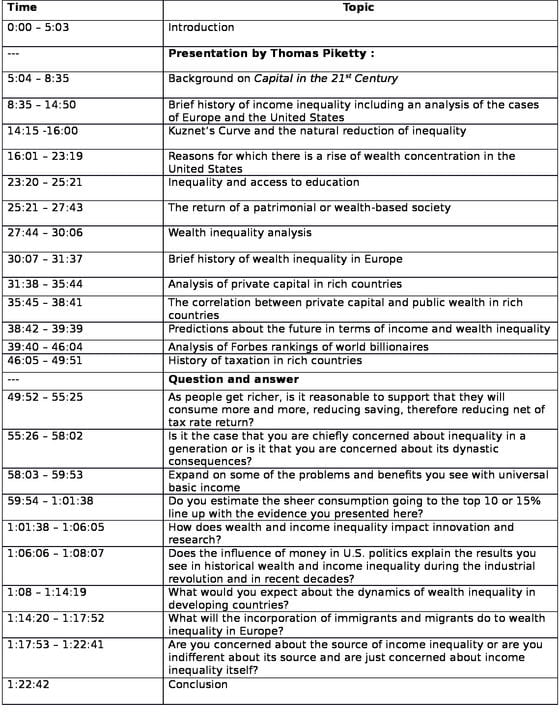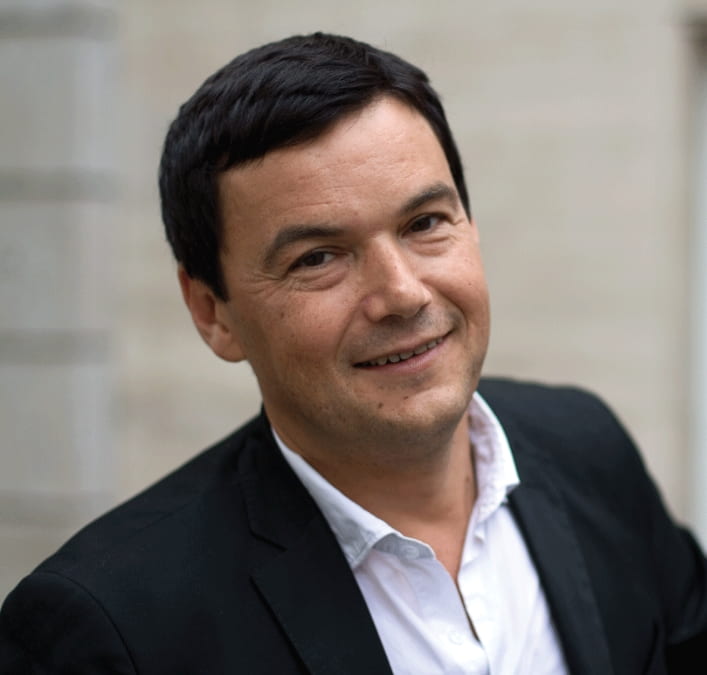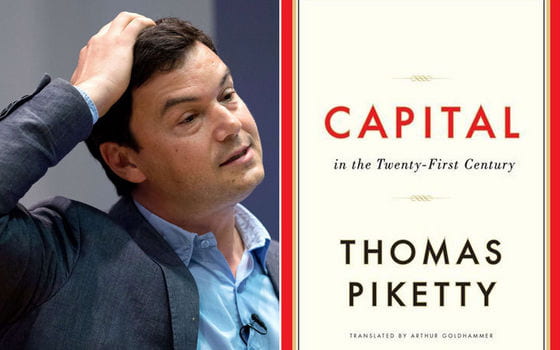Understanding Inequality and What To Do About It
November 6, 2015
1 hour 27 minutes
Program Overview
In this discussion, French economist and expert on wealth and income inequality Thomas Piketty presents his book Capital in the Twenty-First Century. He focuses on the long-run dynamics of income inequality, highlighting that institutions and policies greatly impact income and wealth concentrations from country to country. He then explains the current shift towards a return to a patrimonial or wealth-based society, citing what he calls “the metamorphosis of capital.” In conclusion, Piketty draws from his research and data and comments about the future of wealth concentration. A Question and Answer portion follows the presentation, moderated by Kerwin Charles, Edwin A. and Betty L. Bergman, Distringuished Service Professor at the University of Chicago Harris School of Public Policy.
Outline of the Program

About Thomas Piketty

Thomas Piketty is a French economist and researcher, specializing on wealth and income inequality. He received his Master of Science degree in mathematics from École Normale Superieure and his PhD in Economics from EHESS. He is the author of the best-selling book Capital in the Twenty-First Century and is currently a professor at the Paris School of Economics. His work focuses on the historical evolution of income and wealth distribution and the role of political and fiscal institutions in inequality. Piketty’s groundbreaking research, often hailed as the most comprehensive empirical descriptions of wealth and income inequality and its evolution, is a significant contributino to understanding the dynamics of the economy.
Discussion Questions
Whether watching the video on your own or with a group, we invite you to follow along with the thematic discussion questions listed below, which will help spark debates and gain a better understanding of the subjects examined throughout the video.
1. Why does inequality matter? who does it affect the most?
2. What policies should be put in place in order to reduce the astounding rates of wealth and income inequality in the United States?
3. How would understanding the patterns and rates of consumption further lead to the understanding of wealth and income dynamics?
4. What can individuals do or avoid doing in order to balance the extreme global wealth and income inequalities?
5. What is Piketty’s viewpoint on economic mobility and how it affects society? What does he say would be some positive and some negative aspects?
Online Resources for More Information
New Thoughts on Capital in the Twenty-First Century (Ted)
This 21 minute Ted talk given by Thomas Piketty summarizes the main themes and ideas expressed in Piketty’s book.
Why Inequality Matters (Gates Notes)
American business magnate and co-founder of Microsoft reflects and responds to Piketty’s book.
Other Resources
Book: Capital in the Twenty-First Century by Thomas Piketty (2014)
The book being discussed, Thomas Piketty explains the grand dynamics that drive the accumulation and distribution of capital.
Book: The Haves and the Have-Nots by Branko Milanovic (2012)
Another inequality expert, Branko Milanovic, gives an account of the historical evolution of inequality in advanced economies and presents solutions.
This program made possible with the support of the following

